Evil clowns are a cornerstone of horror, and two of the most iconic (and terrifying or hilarious, depending on who you ask) are:
- Pennywise the Dancing Clown, the ancient cosmic shapeshifter from Stephen King's IT, who feeds on fear and children.
- Killjoy, the demonic jester from the Killjoy film series (Full Moon Features), a supernatural clown summoned for vengeance, mayhem, and twisted laughs.
Both characters wield reality-warping powers and love to toy with their victims, but if they crossed paths in a multiversal horror showdown… who would emerge victorious?
Let’s send in the clowns and find out.
Round 1: Origins & Power Source

Pennywise (IT)
- True form is a cosmic entity from the Macroverse, often referred to as It or The Deadlights.
- Arrived on Earth millennia ago and feeds on fear, especially of children.
- Has a natural predator—The Turtle, another ancient cosmic being—but is otherwise nearly unmatched on Earth.
- Awakened every 27 years in Derry, Maine, to feast.
Killjoy
- A summoned demon clown, created through a voodoo ritual, often called upon by the vengeful.
- Origin varies slightly across films, but he resides in his own dimension called “Killjoy’s Realm” or “The Clown Dimension.”
- Gains power through souls and destruction, and he’s essentially immortal in his domain.
Winner: Pennywise
Pennywise is interdimensional, ancient, and god-like in scale. Killjoy is powerful, but more localized and ritual-based.
Round 2: Abilities & Powers
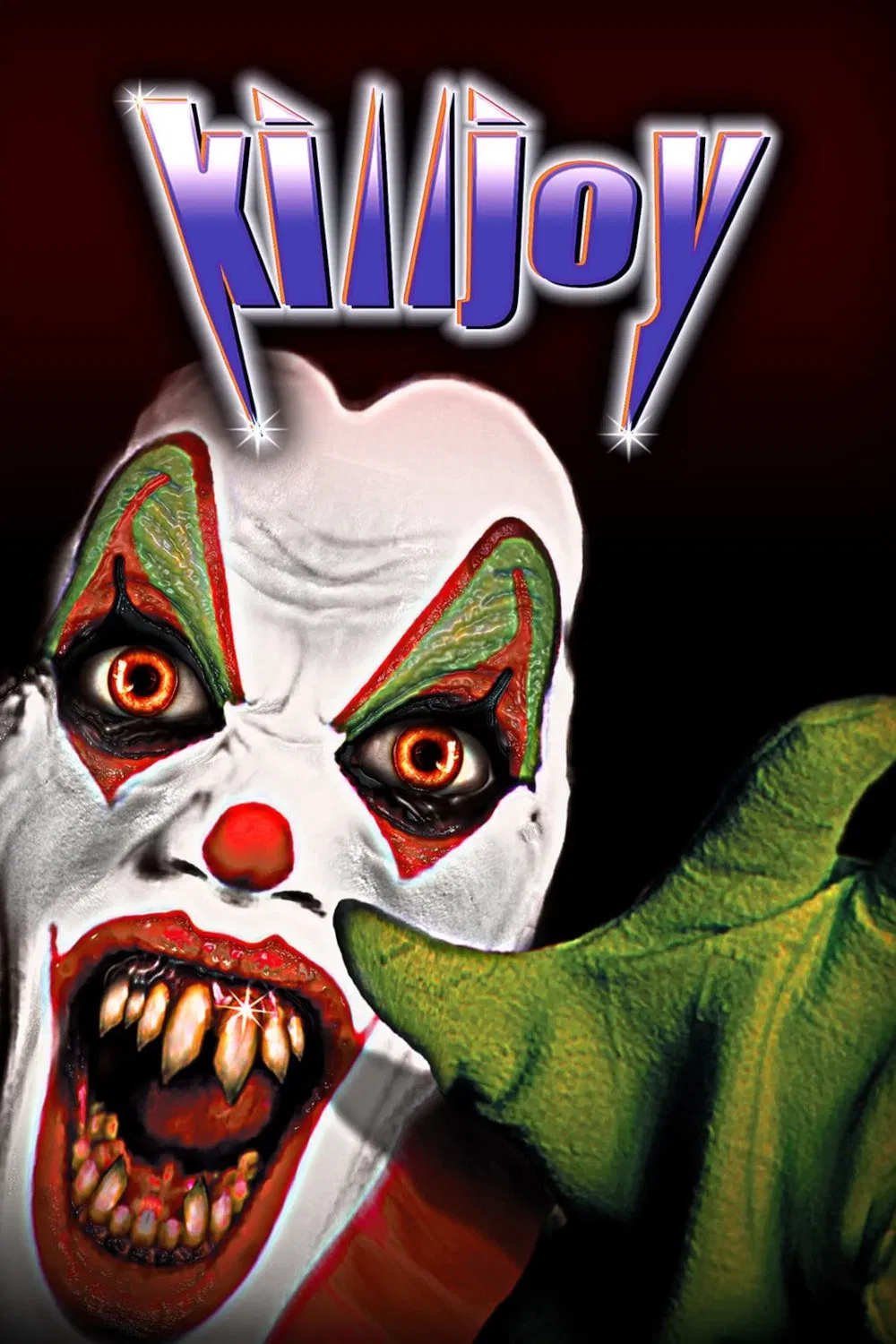
Pennywise
- Shapeshifting: Transforms into whatever you fear most.
- Illusions & mind control: Can manipulate perceptions and plant hallucinations.
- Telepathy & omniscience (in Derry): Knows its victims’ thoughts and fears.
- The Deadlights: Exposure can cause insanity or death.
- Near-invincibility: Only vulnerable if victims stop fearing it or attack its true form.
Killjoy
- Teleportation, telekinesis, and reality warping (especially in his realm).
- Summons minions (Batty Boop, Freakshow, Punchy) to attack in groups.
- Immunity to normal physical harm, especially in the clown dimension.
- Crude magic and trickery: can trap souls, curse objects, and create deadly games.
Winner: Tie
While Pennywise is more terrifying, Killjoy has cartoonish chaos powers, especially inside his own world. Outside it, Pennywise may dominate—but inside Killjoy’s domain, all bets are off.
Round 3: Weaknesses
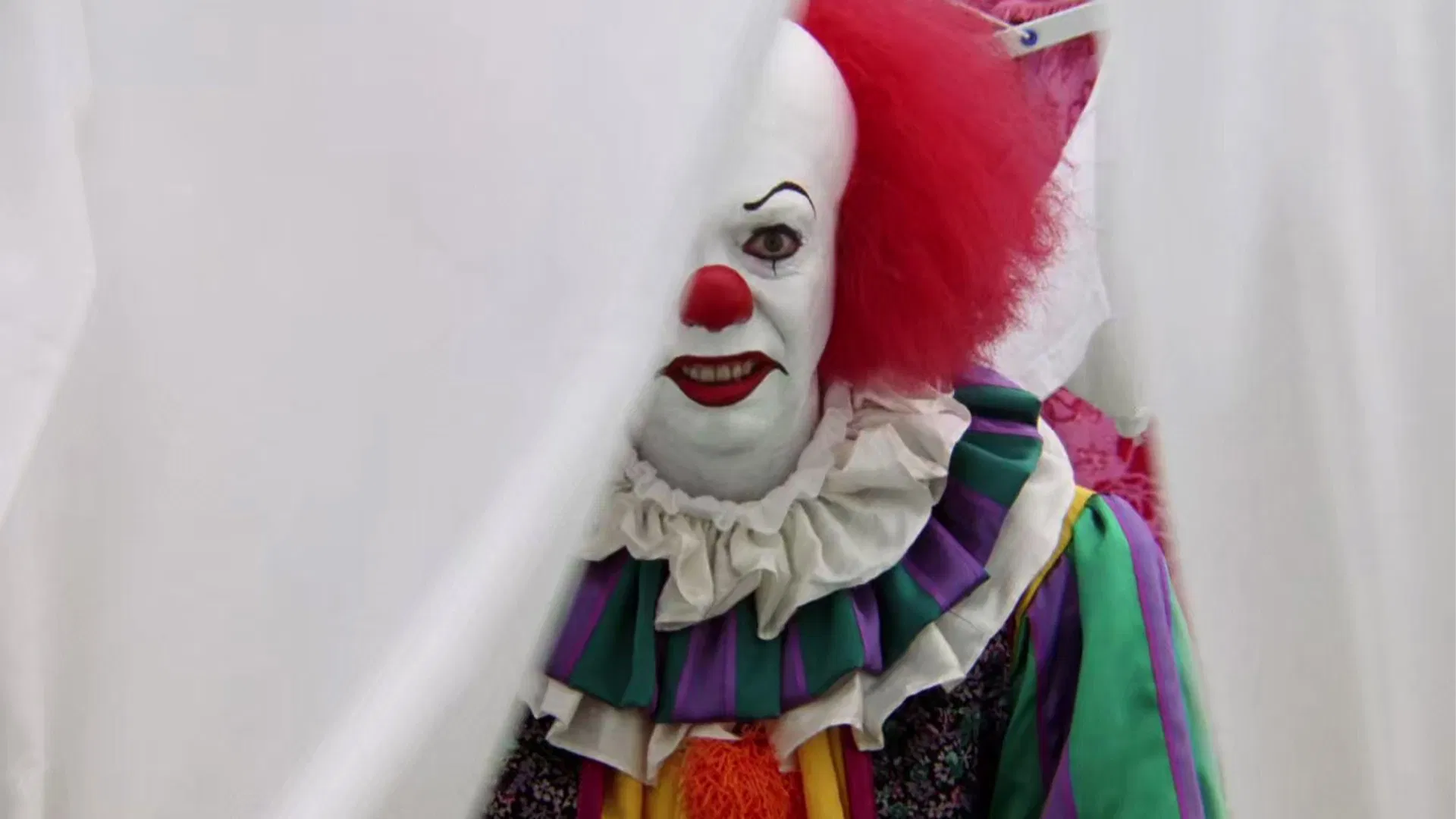
Pennywise
- Feeds on fear—loses power if you stop being afraid of it.
- Vulnerable when faced directly by strong-willed opponents (especially united groups).
- Its true form (The Deadlights) can only be perceived in part by humans, making it hard to fully destroy—but not impossible (as seen in It Chapter Two).
Killjoy
- Originally had to be summoned through ritual, although later films made him more independent.
- Stronger in his own dimension—can be hurt or outwitted outside of it.
- Sometimes too theatrical or distracted by his own games, leaving openings.
- More comedic and satirical, not always taken seriously—even within his universe.
Winner: Pennywise
Pennywise has fewer true weaknesses. Killjoy is more beatable, especially if pulled out of his comfort zone or denied a summoning.
Round 4: Psychological Edge
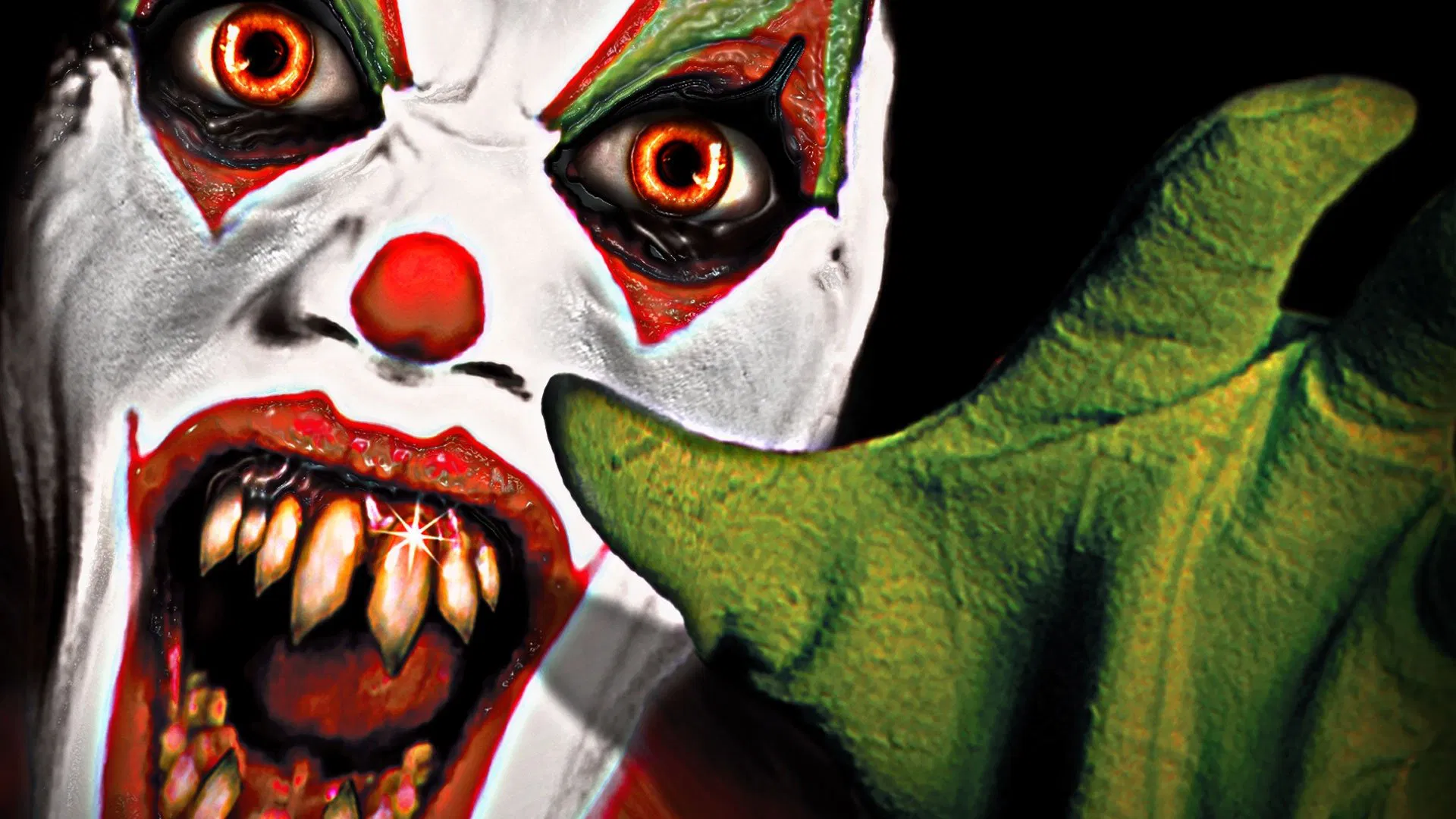
Pennywise
- Instills pure, primal fear—feeds on it, thrives in it, controls it.
- Breaks down victims over time, manipulating their minds and creating despair.
- Symbolizes trauma, childhood fears, and the lurking evil of forgotten pain.
Killjoy
- More of a chaotic sadist—his victims are usually already in desperate situations.
- Uses humor and taunting to mentally torture people, but doesn’t inspire the same existential dread as Pennywise.
- Leans more into grindhouse horror-comedy than true psychological torment.
Winner: Pennywise
Pennywise’s power is fear. Killjoy has fun, but Pennywise is terrifying—even when doing nothing at all.
Round 5: X-Factor (Domain Control)
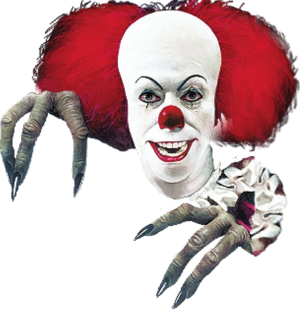
Pennywise
- At peak power in Derry—controls the entire town’s reality, perception, and even adults’ reactions (or lack thereof).
- Has near-godlike influence when operating in his zone.
Killjoy
- All-powerful inside his Clown Dimension, where he can reshape reality, trap souls, summon his court, and become essentially invincible.
- Becomes much more dangerous when pulled into his world, where logic no longer applies.
Winner: Killjoy
In his realm, Killjoy becomes the ultimate jester-demon overlord—even Pennywise might struggle there.
Final Verdict: Who Wins?
| Category | Winner |
|---|---|
| Origins & Power Source | Pennywise |
| Abilities & Powers | Tie |
| Weaknesses | Pennywise |
| Psychological Edge | Pennywise |
| Domain Control | Killjoy |
🏆 Overall Winner: Pennywise (3-1-1 Victory) 🏆
The Battle Scenario: Let’s Paint It Red
- Killjoy is summoned by a bitter soul seeking revenge on a group of bullies—unknowingly opening a portal near Derry.
- Pennywise senses the intrusion, annoyed by this grinning intruder who’s stealing his spotlight.
- Killjoy laughs, summons his minions, and launches his first attack—reality bending pranks, soul traps, and exploding balloons.
- Pennywise morphs into Killjoy’s deepest fear (possibly being ignored or forgotten?), launching a counterattack with Deadlights and grotesque illusions.
- The battle escalates into the clown dimension, where Killjoy’s powers peak. He nearly traps Pennywise in a soul orb…
- But Pennywise taps into the Deadlights, consuming Killjoy’s minions and overloading the dimension with cosmic fear.
- As Killjoy tries to make a wisecrack, Pennywise’s true form emerges, swallowing the chaos whole.
Result: Killjoy is destroyed, banished, or absorbed. But his laughter echoes…
Final Thought
- Killjoy is the king of grindhouse clown chaos—fun, unpredictable, and deadly in his own right.
- But Pennywise is an ancient fear god from beyond time, a manifestation of trauma and terror.
When the red noses hit the floor… fear always wins.
👑 Winner: Pennywise the Dancing Clown
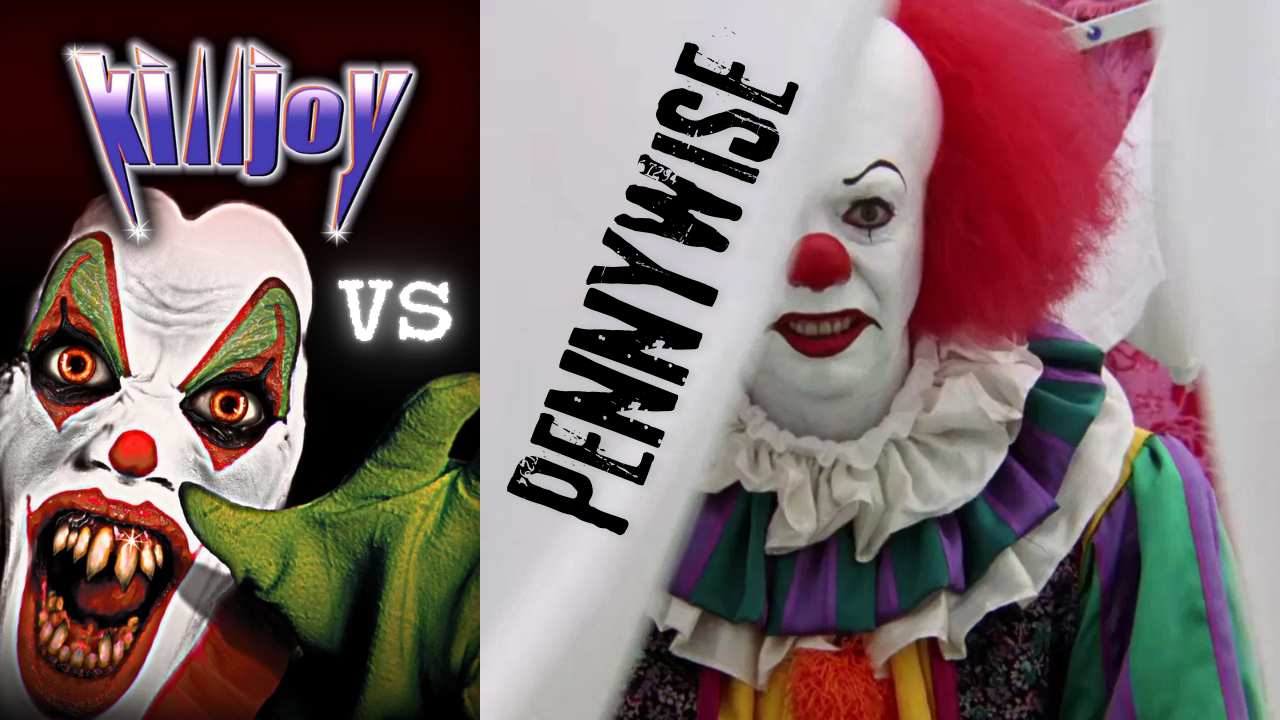
Comments powered by CComment